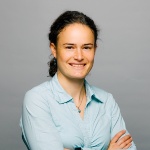In this research project, funded by Vector Stiftung, a laboratory demonstration unit shall be built and operated, testing a new concept that allows to harvest water from the air in arid climate.
Existing technologies for water harvesting from the air have essential disadvantages and are therefore not suitable for arid regions.
Due to the low dew point in arid regions, the very energy-intensive direct condensation of water from the air via electrically driven compression refrigeration systems is not applicable or only usable under very difficult conditions (icing). Condensation by radiative cooling at night is not very efficient due to the very low water content of the air. Existing systems to harvest water by sorption and solar radiation are predominantly operated during the day and/or discontinuously only.
In the newly developed procedure, these systems operated only by night or only by day are combined to achieve 24/7 operation. Water from the ambient air is initially bound on a solid via adsorption and then desorbed with an air flow that is heated up by solar thermal air collectors. Now the water content of the air flow is much higher than that in the ambient air; the dew point is increased. Less energy is needed to cool the air down to the dew point. While cooling down against the ambient air, the water in the air flow can already condense.
In order to cool below the ambient temperature and to condense additional water from the fully saturated air, the sorption procedure is combined with the principle of radiative cooling. The radiative cooling serves as heat sink for the condensation of the water vapor in the air flow. With suitable thermal energy storages (hot and cold), the entire system can operate continuously day and night.
The objective is to develop this concept to the point that it can be used to ensure and/or to establish a continuous, cost-efficient potable water supply for decentrally located single-family houses, multi-family residential buildings, huts, schools or entire settlements or villages in arid regions.
Project data
- Project duration
-
October 2018 – March 2021
- Project partners
-
The sorption materials, investigated so far, were manufactured by NEOTHERM, a BMBF junior research group under the supervision of Dr. Alexandra Lieb, Otto von Guericke University Magdeburg.
Acknowledgements
The author would like to thank for the funding by Vector Stiftung under grant number P2019-0079.
The author would also like to thank Dr. Alexandra Lieb and NEOTHERM, a BMBF junior research group at Otto von Guericke University Magdeburg, for manufacturing and providing the sorption materials.
Contact

Tamara Annabelle Theimel, M.Sc.
Academic employee



